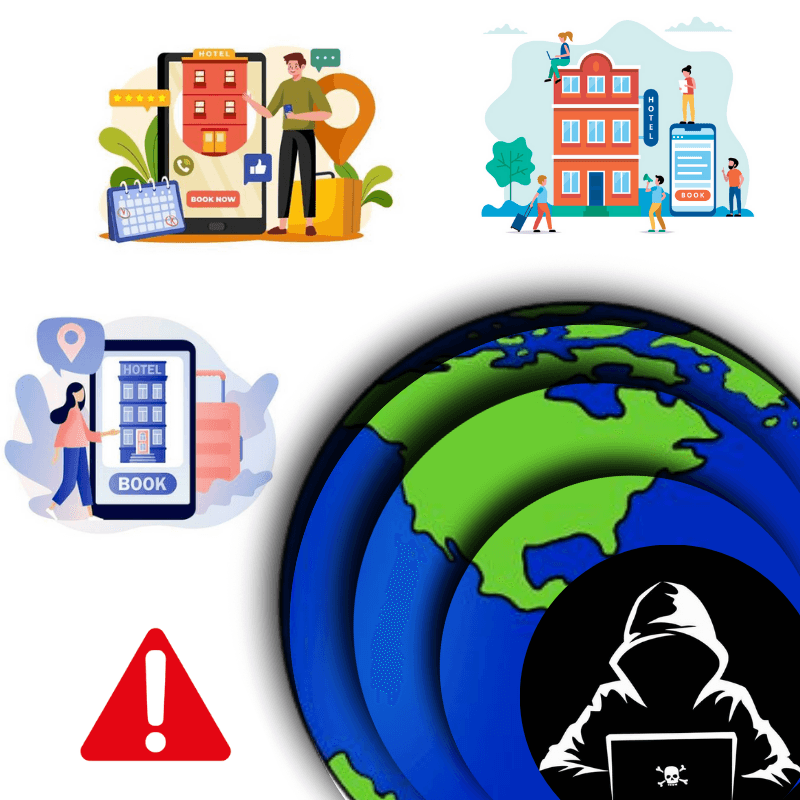
Traveling or booking a major event should be a time of anticipation and joy, but unfortunately, scammers have been taking advantage of people’s enthusiasm to commit sophisticated scams. Below, I highlight the main types of fraud that have been worrying travelers and fans around the world – and, of course, how to prevent them.
Fraudulent hotel and guesthouse reservation scams –
Fake profiles and pages of establishments.
Scammers create real or identical profiles of hotels and guesthouses on Instagram, Facebook or WhatsApp. By attracting followers with sweepstakes or offers, they send malicious links for “reservations” or ask for deposits via Pix.
Automatic cancellation of confirmed reservations –
Customers receive official confirmation of accommodation, check in, but upon arrival, discover that the reservation was canceled without warning – and no one responds. A recent case reported a reservation in Orlando via a well-known app like HURB confirmed via Pix, but canceled at check-in
reddit.com
Daily raffle scams –
In tourist destinations, there are promoters offering free stays via raffles. However, the “prize” is only released after payment of a subscription or monthly fee to a club – a practice characterized as a tied-sale scam.
Reservations on legitimate platforms with suspicious redirection
Even on well-known platforms, there are cases in which the owner informs that an “extra” fee will be charged via Pix to guarantee the reservation – generating strong suspicion of a scam.
How to protect yourself?
Always confirm directly with the hotel by phone or official website.
Be alert to requests for external payment (outside the original platform).
Use a credit card or PayPal, which allows you to dispute suspicious charges.
In the event of a scam, file a police report to contact the platforms and demand a refund.
Fraud in global events: fake tickets and sales via pirated websites;
Searching for tickets to shows and events such as the Olympics increases the risk of financial scams and frustration.
Fake or cloned websites
Scammers create almost perfect replicas of the official sales websites, using similar URLs and asking for payment via Pix or transfer. After payment, the ticket never arrives.
Fake or duplicate tickets:
Reports show tickets with cloned QR Codes — several victims buy the same one, but only the first one is validated at the event, leaving the others without access.
Organized scalpers and international gangs
Illegal ticket sales schemes were already investigated during the 2014 World Cup and the 2016 Olympic Games. Thousands of tickets were seized and scalpers who made up to R$1 million per match were arrested.
Scams via social media and apps –
Ads in Facebook, Telegram or Instagram groups promise “last tickets” and discounts. The buyer pays via Pix and is immediately blocked. A case on Reddit reported the purchase of Taylor Swift tickets via a profile that disappeared after the.
How to prevent it?
Only buy through the event’s official channels, such as ticket offices or recommended platforms.
Check if the website has HTTPS and a padlock, and if the company name and CNPJ are displayed.
Be wary of very low prices and promises of quick sales or priority queue
When reselling, choose secure platforms with payment held until delivery.
Registration of a police report is essential if you are scammed.

